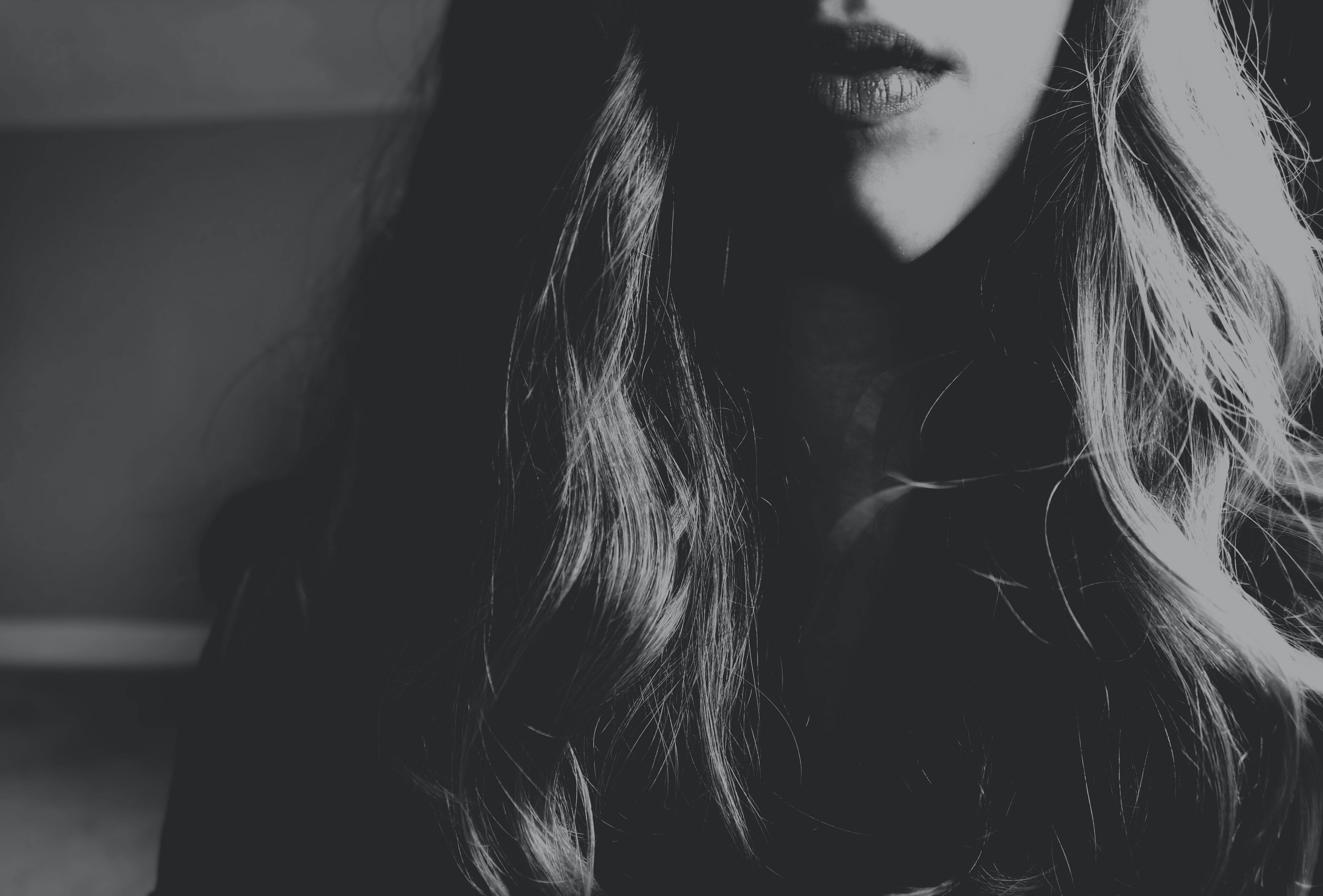
After her wife’s funeral she stops cutting her hair.
It’s not a conscious decision. Not at first. Nothing she does in these early days is considered. Suddenly she’s faced with the task of deconstructing her old life and adjusting to this new one so grimly handed to her. The emptying of closets and hoarding of personal items, reshuffled from the open spaces of their home and tucked away lovingly, secretly. Her wife becomes the chipped paperweight, the collection of vintage keys, the cookbooks that were bought with enthusiasm but never used. Neither of them could cook, and that in itself becomes a story. Keepsakes are intertwined with memories, and her hair becomes a neglected thing she absently brushes away from her eyes.
She’s kept it short since she was ten, when her eldest brother came home on leave with military-short hair. She runs her hand over his bristly scalp on a summer afternoon, her own locks sticking to the back of her neck, and an hour later her mother finds her in the bathroom, gleefully running the clippers over her scalp, a newly shorn lamb. But now it’s tickling her face in an unpleasant way, and she pushes it back behind her ears in a movement that becomes, for a time, part of her.
When it grows past her ears she wonders if she should go back to work. When it reaches her jawline other people wonder if she should go back to work. She waits for the grief to ease as everyone tells her it will. As the movies tell her it will. As the novels tell her it will. As the self-help books her well-meaning friends and family pass onto her
‘… this helped me when …’
tell her it will. But the death is permanent, so the grief cannot be temporary.
When it reaches her shoulders she returns to work and staunchly pretends not to notice the clearing of throats, the shuffling of feet or the avoidance of her eye for the requisite period of awkwardness.
When it reaches the middle of her back she keeps it in a low ponytail that sways in time with her footsteps as she walks the hallways of her office building.
When it reaches the small of her back she braids it over her left shoulder and people flick their eyes to it while she fills in their details. Sometimes it knocks over the pen holder and they catch paperclips and skidding biros by reflex.
When it reaches her hips she changes cities and careers. She makes two braids now, and often finds people glancing at them, irritated, as if her grief should have been lopped off years ago, as if it burdens them somehow to act, to say things they can’t express, when all she wants is to be. She takes French cooking classes, belly dancing classes, pottery classes. She moves forward with her life, carrying the grief that stayed. She goes on holidays, drinks too much during the winter when the nights are cold, gets into a minor car accident, paints the walls of her narrow terrace house. At nights she sleeps, her cheeks resting in the soft ropes of her hair, and dreams in the deepest part of her brain about her loss. The grief, rather than dissipating, simply grows with her. It changes her posture, the clothes she wears, the types of novels she reads, the friends she cultivates. She starts to wonder if perhaps people aren’t walking trees, uprooted and nomadic, their layers growing thicker with each year that passes while the inner disappears from view.
On her thirty-fifth birthday her mother tells her that when a woman’s heart dies another one will grow in its place. Like shrubs. Like baby teeth. She believes it, but it’s a stop-start thing, a newly acquired skill. All stiff muscles and straining. Flirting is exhausting. Dating leaves her drained and cynical. Sex with people who aren’t her wife makes her feel dishonest, as if she is somehow lying to the world and waiting to be pointed out, and punished.
When her hair reaches her thighs she stops with the tying and braiding and simply lets if fall - over her shoulders and down her back - a waterfall of auburn streaked with silver. It takes an extra half hour in the bathroom to dry. One day in a café a little boy trots over, and pats it.
When it reaches her knees her family hold an intervention. Her mother spends the entire morning baking in preparation and there are fresh flowers in vases. Words and phrases are passed around like canapes. Cutting. Fresh starts. Healing. They drift around her like paper moths. She is a little touched, a little amused. By evening half the family are drunk on red wine and her mother is playing Michael Bublé very loudly and trying to get her father to dance with her on the patio. He does so with a pop of knees, a sigh of complaint, but he holds his wife in his arms with an ease born of decades, and his face softens at the touch of her waist. These are the moments lost to her. She sits in the corner of the sofa, one leg dangling over the armrest like a kid, and the cat makes a nest of her hair to curl up and sleep in. She is gloriously tipsy and her family forget their concerns. They make hot chocolates and watch a movie.
A few months later she goes viral when on a windy day her hair gets caught in the spokes of a vintage-style bicycle and she’s thrown onto the tram line. She suffers a dislocated knee and a cut to her scalp that needs stitches. She’s mortified by how fast the dashcam footage is shared online, the tweets and the inevitable hashtag. But within a week she’s offered a spot in an ad campaign for a haircare brand. There’s a photoshoot with an enthusiastic team who set up in an old denim factory. Between outfit changes and the rearranging of her hair she sits on a worn velvet bench, leans against brick walls and drapes herself over a rusted piece of unidentifiable machinery. During a coffee break she asks why they’ve chosen such an industrial space and Gillian, the photographer, talks about contrast and texture, and tells her the factory is soon to be knocked down to make way for a housing estate.
She has fun, but it’s a long day, and when it’s over she lets Gillian drive her to the nearest café. They skip small talk in favour of discussing food and politics, leaning towards each over the table as if trying to join in the middle. Her hair keeps falling between them like a curtain. It knocks her phone off the table. It gets caught on someone’s coat buttons as they walk past. She tells Gillian about the time she shaved her head, when she was a kid, and feels the kick of her new heart.
